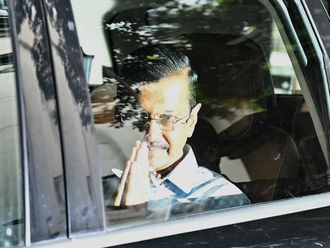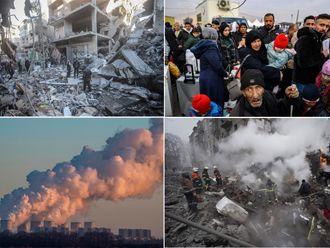Today is the deadline for a final settlement of the dispute between Iran and the international community over Iran’s controversial nuclear programme, but it looks very unlikely that the P5+1 (the 5 permanent UN Security Council members plus Germany) and Iran will be able to come to a conclusion. Nonetheless, the Gulf region and the world will be a safer place if a deal can be struck and Iran starts to offer full nuclear transparency. Therefore if there is no deal today it is important that the participants do not storm off and indulge in mutual recrimination. Both sides have put a lot of effort into finding what they can agree about and they both have too much to lose if they allow a non-agreement to become a complete collapse.
An extension of the talks would be welcome, although too many extensions would weaken the political momentum in favour of an agreement. But if the negotiators need another week, or month, or even two months, that should not be a problem. And if a complete deal does not look possible for whatever reason, it is certain that the negotiations have covered enough ground to allow a useful partial deal. Some transparency and clarity from Iran on particular process and sites in its large nuclear programme should be combined with a measured relaxation of sanctions. This has already been happening over the past year, and it is a process that both sides are familiar with.
Both sides have serious political problems in getting any potential deal ratified in their domestic systems: US President Barack Obama has lost control of Congress and the Senate and his Republican opponents will not be willing to agree to any deal if only to annoy the president. Iranian President Hassan Rouhani has to persuade Supreme Leader Ali Khamenei that Iran can trust the United States to keep its side of any deal. To that end, it would be a grave mistake for the US to try and link any nuclear deal to a wider improvement of bilateral relations, which would be anathema to the isolationists around Khamenei.


_resources1_16a45059ca3_small.jpg)





